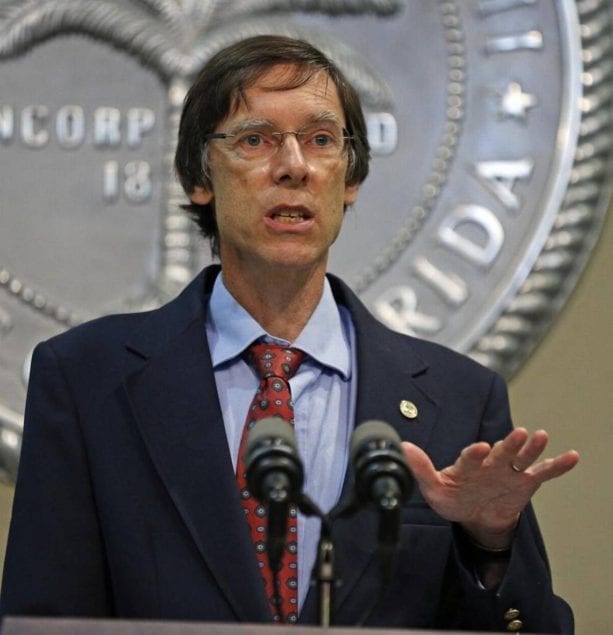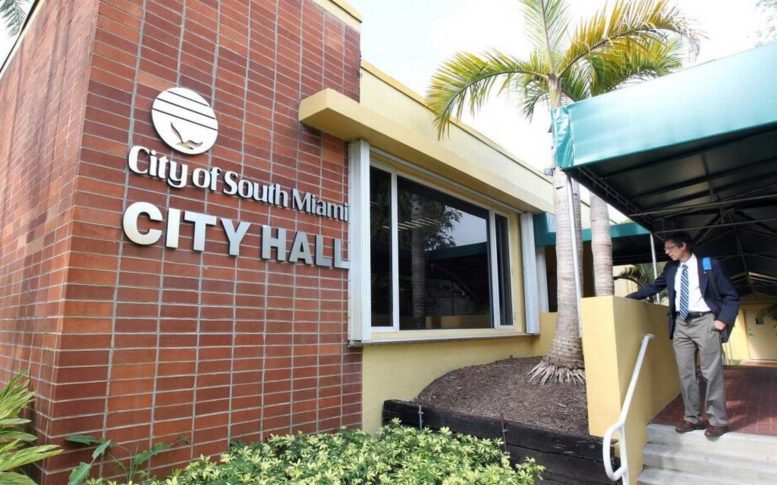
South Miami Mayor Philip Stoddard abruptly cut the microphone of Stephen Cody back in January of this year and then would not let him speak again in February at a public meeting of the South Miami City Commission. Cody filed a complaint with the Miami-Dade Commission on Ethics. When it came up before the Ethics Commission in April, Stoddard’s attorney, Benedict Kuehne, was too busy, so the hearing had to be pushed off to July.
When the hearing finally happened in July, the Ethics Commission voted to find that there was probable cause that Stoddard violated Cody’s rights under the Citizens’ Bill of Rights in both the city and county charters.
In a normal case, the Ethics Commission and the accused take 30 days after the finding of probable cause to see if they can come to a settlement. Usually that means an admonishment or a reprimand from the commission with directions that the public official not repeat the offending behavior. Lacking that, the case proceeds to a hearing.
Sources tell us that Stoddard has vowed that he will not settle the matter and is demanding to go forward. That, however, was before the city commission took away the funding for Stoddard’s defense. It remains to be seen whether Phil will be obstinate when he’s paying his own legal bills.
In this case, the matter seems cut and dried. Stoddard had a dial at his desk that could turn off the microphone so that the viewers watching the meeting on the city’s government access cable TV channel couldn’t hear what was being said at the podium. Stoddard used that power to silence Cody — twice.
Both the city and county charters have a provision that gives “interested persons” the “right to be heard.” The city charter goes further, saying that if the Ethics Commission determines that an official intentionally violated a person’s rights, that official forfeits his or her office immediately.
The stakes in this controversy are more than just Phil’s political payback against someone he feared would publicly criticize him. This case comes down to Phil’s fitness to hold the office of mayor. And it could have an effect on whether Stoddard will ever hold political office again.
The hearing on Cody’s complaint shouldn’t take more than an hour or two. The Ethics Commission should review the video of the hearings. That alone could show them all they need to see. And Stoddard should offer any defense that he has.

At the probable cause hearing before the Ethics Commission, Stoddard laid the blame with the bad advice he got from South Miami City Attorney Thomas Pepe. The two of them should testify at the Ethics Commission hearing and point fingers at each other.
So far, the Commission on Ethics hasn’t moved the case forward. No depositions have been noticed. No final hearing has been set. At this pace, they might not set this matter down for a hearing until sometime in 2019.
This is a textbook case of where justice delayed is justice denied. If Stoddard can overcome the finding of probable cause, let him come forward with his evidence.
If Stoddard can’t, and the Ethics Commission determines that he acted with intent, then the remedy adopted by the people of South Miami should be allowed to go forward. In that case, Philip Stoddard should lose his job as South Miami mayor.
The delay of the case for more than a year from the date of the complaint does not serve the interests of justice, which demands a resolution that is both swift and complete.








Comments are closed.